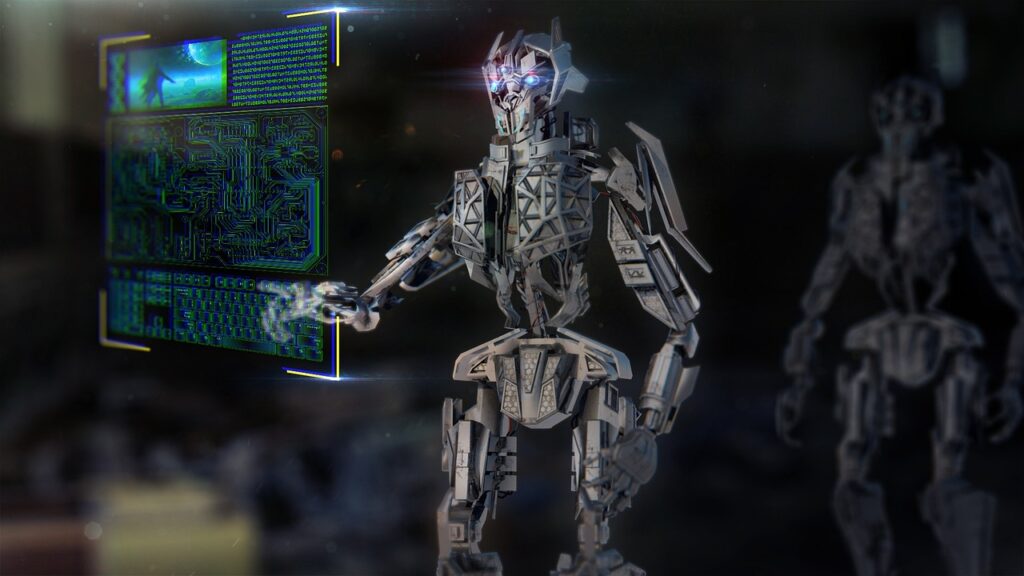Oct 18 - 4min readThe Deep Tech RevolutionBy Launchbase
It has become almost impossible to spend an entire day without relying on technology at some stage. We use our laptops, mobile phones, and smart home devices almost constantly. But there is s technology revolution behind those devices that remains unseen by most consumers’ eyes – the deep tech revolution.
What is Deep Tech?
The term deep tech refers to technologies that are not immediately focused on consumers and end-users. These technologies are the drivers behind developments in artificial intelligence (AI), machine learning (ML), advanced material science including nano materials, biotechnology, and robotics.
Whilst they may not be immediately visible in our everyday lives, they are the drivers behind some of the most exciting changes our society will be undergoing in the next few decades. Deep tech is not restricted to one or two areas of technology alone. Vision and speech algorithms are taking hold across different sectors, and countless industries benefit from improved power electronics and advanced processing capabilities.
Why is Deep Tech so Influential?
Deep tech developments sit right at the crossroads of engineering innovation and scientific discoveries. Essentially, these technologies ae the enablers and catalysts of technological change. Many deep tech companies own engineering innovations that drive big advancements in how society perceives and applies technology.
This is what sets deep tech companies apart from other technology companies. Over the past decades, some of the best-known technology companies have relied on incrementally advancing existing technology. Others took a technology that had become standardized and combined it with an innovative business model to succeed.
For years, these approaches have undoubtedly advanced the tech industry, albeit slowly. In addition, they have attracted considerable interest from investors and venture capitalists. However, as the market for these applied traditional technology solutions is becoming saturated, investors are starting to look further afield to back the next big developments.
Deep Tech and Robotics
To the uninitiated, any mention of robotics or robots might bring back memories of watching the original Star Wars movies and being fascinated by R2-D2. Modern deep tech robotics applications rarely resemble that vision, but, globally, industrial robots are revolutionizing work.
The International Federation of Robotics (IFR) reports that the operational stock of industrial robots is now around three million worldwide, having increased by approximately 13% year on year between 2015 and 2020. The coronavirus pandemic, followed by the so-called Great Resignation, has led to new industries considering robotics for the first time.
According to the IFR, eCommerce is one of the sectors that has embraced robotics during the pandemic. For this sector, a combination of increased demand from consumers and contact restrictions made robots an obvious choice. Now that a labor shortage is taking hold, robots are still able to fulfill orders and meet consumer demand. Plus, deep technology has enabled robots to deliver something that only humans used to be able to do – advanced levels of personalization.

Machine Learning
Alongside AI itself, machine learning is one of the foundations of the technological transformation of our current society. Deep tech is no different in its reliance on machine learning for most innovations being developed today.
At its most basic, machine learning enables a computer or other machine to complete a task without human input. Deep learning is an advanced form of machine learning that enables the computer to constantly increase its knowledge based on previous results and outputs. That means that the computer in question could constantly improve itself as it learns more.
Nano Materials
Nanotechnology as a science or an engineering discipline does not necessarily one hard-and-fast definition. One way of thinking about it is to imagine science and engineering on a molecular scale. That is how small nanoparticles and nano materials are.
Researchers are currently exploring their potential in medicine, for example. Because of the small size of nano materials, they create opportunities to treat diseased cells directly without the need to damage healthy cells in the body. These treatments have the potential to revolutionize cancer treatment. Current forms of treatment, such as chemotherapy and radiation, are already effective in many cases, but come with crippling side effects.
Managing the behavior of nano materials and avoiding unwanted effects is something scientists are still working on. Nano materials may be invisible to the human eye, but they are highly reactive. Plus, because these particles have not yet been researched for as long as other treatments have, scientists cannot yet predict exactly how they will act in the human body and which chemical reactions they might trigger.
They are also easier to ingest because of their smaller size. That means they may have strong implications on our food supply in the future.
For a Better Future
Deep tech can help address some of the biggest problems we are facing today, like food insecurity and collapsing transportation systems.
When it comes to food insecurity, for example, it is becoming obvious that traditional farming methods are not delivering the solutions the world needs. Deep tech, such as blockchain-based data processing, revolutionizes weather and climate predictions which are critical for successful farming. With the help of deep tech, farmers can choose crops more effectively and time their sowing and harvesting cycles based on current data rather than older, more vague predictions.
Transportation is another one of the most pressing problems facing our society. Cars and other vehicles regularly cause gridlock in cities across the world as our infrastructure struggles to keep up with the rate of growth of the planet’s population. Smarter transportation networks, based on deep tech applications and solutions not only help improve your commute to work.
They can also be a gamechanger for the running of power plants and other energy supplies. In that context, deep tech has the potential to limit costs. These technologies can take our society further into the future by helping to limit carbon emissions and developing or refining sustainable ways to produce energy.
Deep tech applications may not be as obvious in our daily lives as more traditional applications such as social media networks. However, behind the scenes these technologies are changing the way we will live in just a few years’ time. As investors are putting more resources into the field, we can look forward to transformations across all industry sectors.



